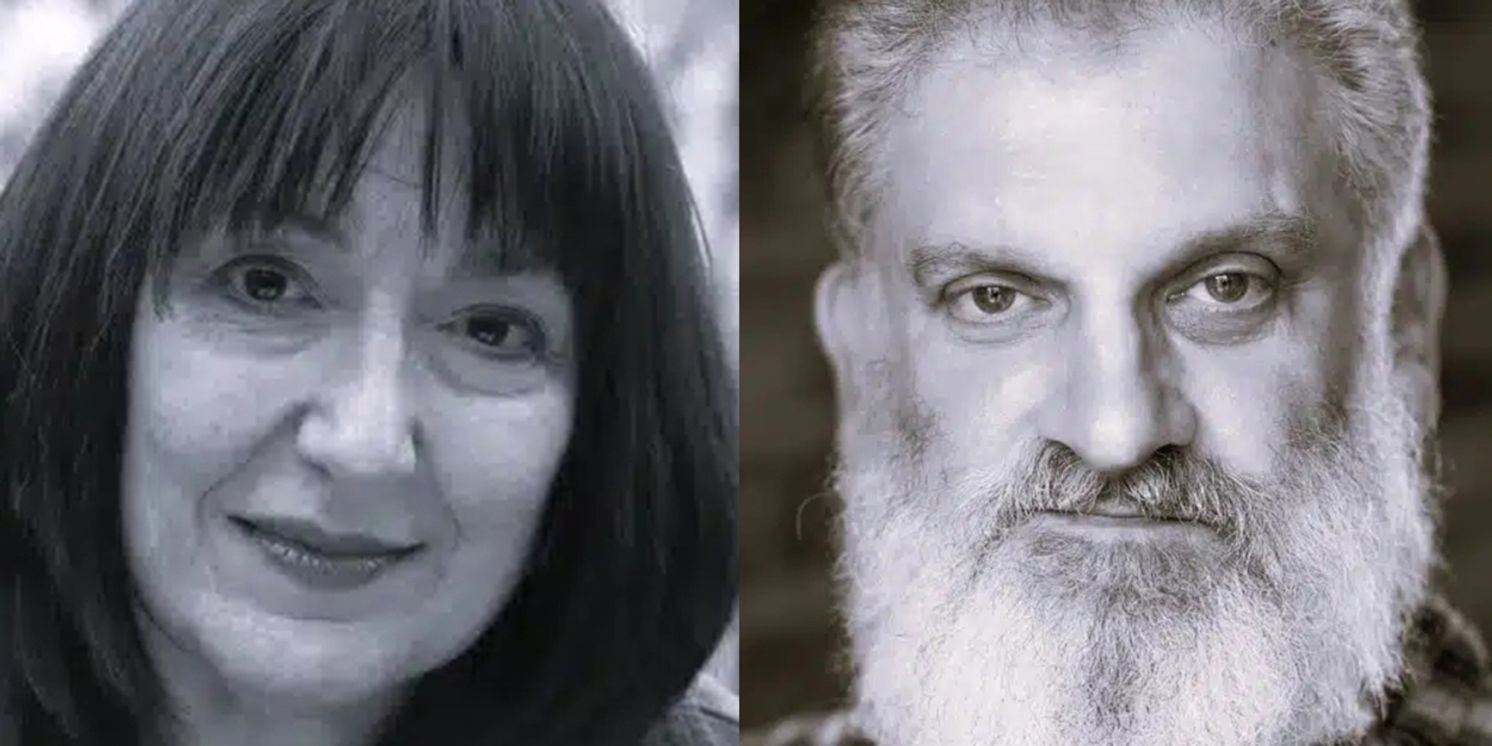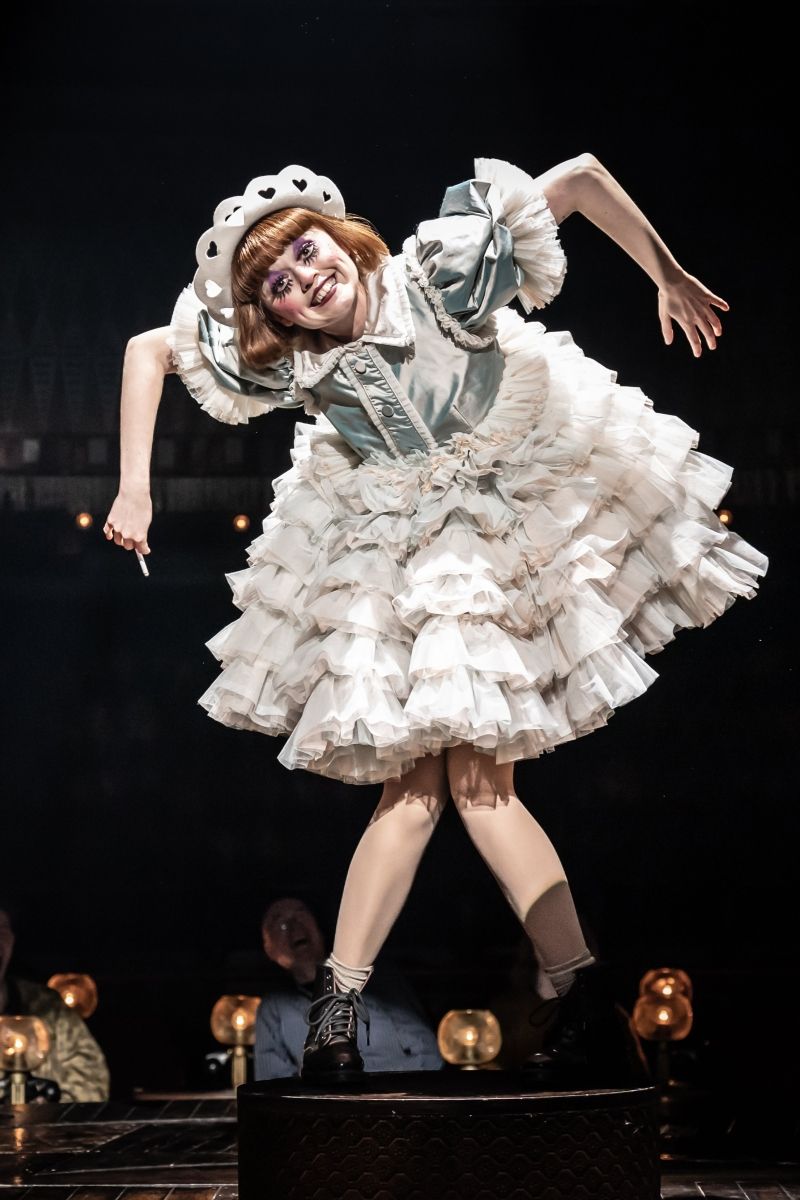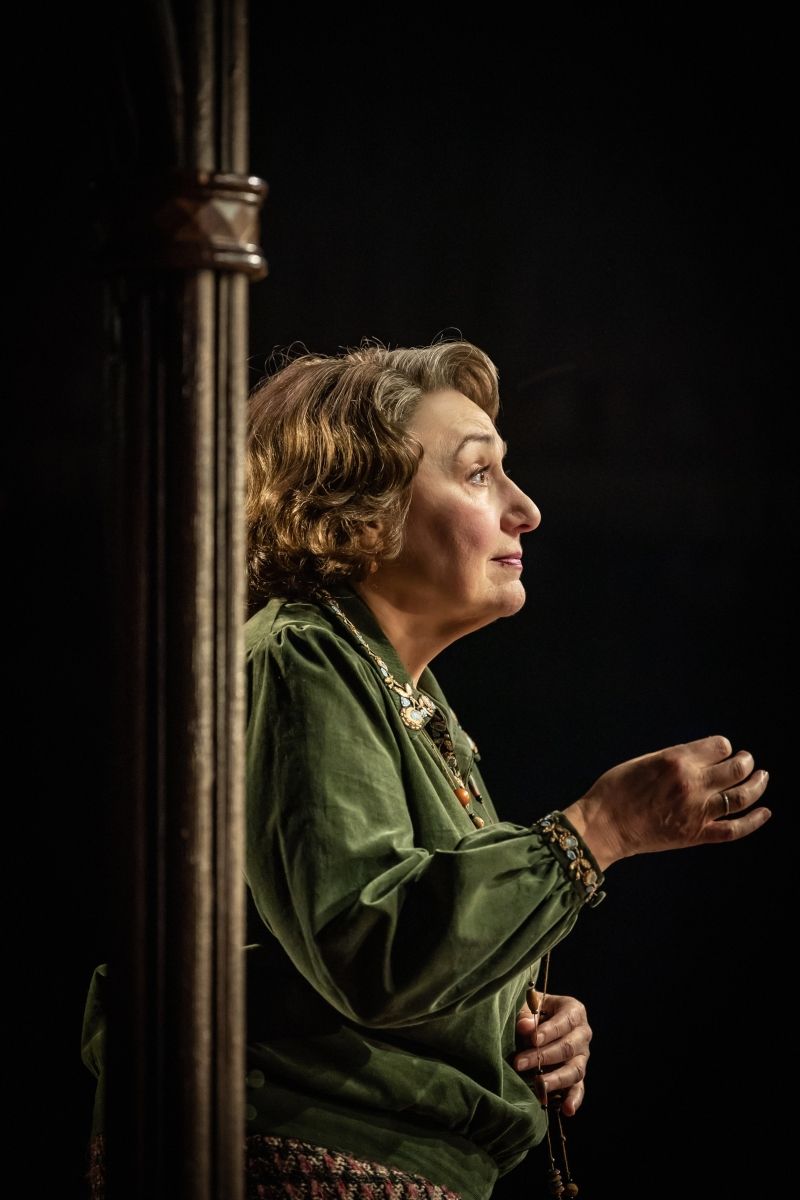Interview: 'It's Not Like Anything I've Known Before' Beverley Klein and Teddy Kempner on the Value of Experience and the Joys of Joining CABARET
Two of the new cast of Cabaret talk all things Kit Kat Club

It has won just about every award you can name. It’s had a slurry of star-studded casts swan in and out of roles. Having taken over the Playhouse Theatre and turned it into the glistening Kit Kat Club, it is fair to say that Rebecca Frecknall’s Cabaret has cemented itself as an iconic production that has set the bar for immersive musicals.
BroadwayWorld caught up Beverley Klein and Teddy Kempner, two of the newest cast members, as they take over as Herr Shultz and Fraulein Schneider.
Neither are strangers to appearing in or with iconic productions and collaborators. Teddy has the rare accolade of having working with the two most diametrically opposed directors in film: Barbra Streisand and Lars Von Trier. “that’s very true” he gracefully acknowledges.
Beverley appeared an early version of Jerry Springer: the Opera at the Edinburgh Festival. The show, featuring tap dancing members of the KKK, has garnered enough controversy, protests, and upheaval to last a life time.
BK - It was a huge success at the Edinburgh. I remember a friend coming to see it and saying that her face ached afterwards from laughing so much. It was a wonderful thing. It was a wonderful company, many of whom went on to do it in further versions. It was a great thing to have done.
One day, without prior warning, Jerry Springer himself showed up.
BK - We didn't know he was coming. He came and met us all. He shook my hand - I didn't wash it for a week or so. He was absolutely charming.

Photo Credit: Marc Brenner
Cabaret has been quietly reinventing itself with new casts rotating in and out since its premiere in 2021. The central roles currently boast The Sandman’s Mason Alexander Park and Euphoria’s Maude Apatow. They join an elite club of theatrical alumni including Eddie Redmayne, Aimee Lou Wood, Jessie Buckley, and Callum Scott Howells who have played the “toast of Mayfair” Sally Bowles and the ethereal Emcee. But taking the reins is not as simple as it looks:
TK - The truth is, I wouldn't have taken over if you were expected to repeat somebody else's performance. You go into something like this and you do the best you can, as if it was you for the first time.
BK - Where you stand is very slightly adjustable, but the character itself, the person you are playing, is absolutely down to you and should be. I'm glad to say nobody expected anything else. They wanted you to do what it is you wanted to do. And we did, did we not? Teddy is absolutely right. There was no pressure on us to be anything other than who we are and our interpretation of it.
TK - You can't go in and do somebody else's version. It would be ridiculous. It wouldn't ring true, it wouldn't be right. It wouldn't be alive, would it? Do you know what I mean?
They rehearsed with Jordan Fein, Cabaret’s associate director who's been helming the various incarnations from the beginning.

BK - His notes are annoyingly correct. There have been occasions when he has said to me, I think you'll get bigger laugh if you do such and such and such. And the man was right. How infuriating? No, he and the assistant director were both magnificent. And we worked very much, just the four of us.
TK - Yeah. We didn't meet anyone, really. It was slightly bizarre. His assistant would read in the other parts and stand in the right place and all that. It was a strange experience, but such nice people. It was all very jolly.
The nuts and bolts of putting the characters together on stage was straight forward from there.
TK - Our story is mostly separate from Sally, Cliff and the Emcee. I only meet Maude in the play twice, very, very briefly, and it's always lovely to see her. It's a pleasant surprise.
BK - I have a couple of times when we're actually on stage together, I just have a couple of brief meetings with her otherwise, as you say. And as far as Mason is concerned the Emcee is a completely separate entity. I see Mason coming on and off stage and that's about it.
First performed on stage in 1966, and adapted for film in 1972 Cabaret hasn’t lost any of its social prescience. Ostensibly the story of the dying days of Weimar Germany, when hedonism reigned supreme and champagne flowed like blood through Berlin’s veins, beneath the catchy tunes and sexy allure it is a story of human desperation, terror, and survival. This chameleonic production, with a record-breaking seven Olivier Awards to its name, hasn’t lost any of its bite.
TK- Maud and Mason are just fabulous. Really wonderful. And honestly, it's worth seeing again because you'll see it'll be very different. It has been it's been done in a very, very original way that I've not seen done in a theatre before. I've never seen a producer being prepared to spend the money on a building in the way they have. And it's been obviously worthwhile.
BK - It’s not just the party atmosphere of Weimer Germany. It’s rare to see an audience enraptured, clapping and cheering, then to switch to absolute silence in the drop of a hat. It's a wonderful theatrical experience that's not like anything I've known before.
Performing in The Kit Kat Club is no different to a normal stage, the fundamentals still ring true whatever the mechanics of the space.
TK - You do your scene, your scenes, as best you can, full stop. And all of that ambience, I think, is what it does, is it has an amazing effect on the audience. A really positive, remarkable effect.
BK - We're in amongst them as well in a very powerful way. The first time you walk on that set was a bit terrifying. I've worked in very small studios where you're acting directly in front of the audience, where you're a foot away from them. There's a real communal experience, but as you say, once you're on, you try and immerse yourself into being on stage. You are immersed with the other person, particularly between me and Teddy.
The audience, and the performers’ relationship to them, comes to play a crucial role for Teddy and Beverley.

TK - If you do a show and there's no audience there, it honestly feels like there's a character missing. And if there's nobody listening, then you're kind of buggered, really. But when those changes of mood happen within the audience, it's very focusing, which is very good.
BK - Particularly for us, I feel, anyway, that we rely very much on each other to provide the changes in mood. For me, it starts off quite cheerily and I mean, it's a tough world that we're inhabiting, but we find the joy and that sadness.
The sensitive elements of Cabaret’s story led us to think about authenticity in casting, a theme that hits the headlines every so often. Recently it was Michael Sheen’s comments about Welsh actors playing Welsh roles that sent ripples across the water.
TK - I must confess, I think all this stuff about you can only do X if you're whatever X is. I'm not entirely a fan of that myself.
BK - As long as I'm convinced, then that's fine. But there is a certain authenticity that one requires if one is of a certain ethnicity.
TK - This is a fairly extreme example, but think of The Elephant Man. There are plenty of people out there who have this particular physical problem, so do you need to go and find someone who has that physical problem before you're allowed to play it?
BK – John Hurt was magnificent as Quentin Crisp as well.
TK - If he had given a lousy performance and it was an insulting sort of version, then you would have a problem. But it was a fantastically empathetic, sympathetic and obviously completely plausible outing. Brilliant.
BK - I'm a huge Modern Family fan at the moment, having only discovered it recently. And the gay couple in that one of them, the more camp of the two isn't gay, and the other one is. They are both totally plausible as a couple. And that's all that you require.
TK - Yes. And does that mean, as a gay man, you can't play straight people? Well, that's ridiculous. For me, you either do it and do it right and it's convincing, whatever you're playing, or you've blown it.
BK - I mean, I can't say that I haven't agreed with David Baddiel in his Jews Don't Count book. He put up a very convincing argument, and I think there's a great deal of truth in what he said. But it's a thorny subject, really. If it looks authentic, that does it for me. It doesn't have to be authentic, it just needs to seem authentic.
TK - I do appreciate that. If you're Welsh or Jewish or Scottish or whatever you are, and you're paying a Welsh or Jewish or Scottish person, there is, of course, a certain amount in there that is instinctive knowledge, and I understand that might help, but I still stick by the thing that you either do it right or you don't. And if you don't do it right, you ain't done it right. End of story.
BK - I've done a couple of different options of Fiddler on the Roof, and generally you'd find there are two and a half Jews in the company. That's it.
TK - The half ones are messy, though, aren't they?
BK - One converted halfway through. Converting at this point. Really?
Cabaret is currently booking at the Kit Kat Club at the Playhouse Theatre until 16 December
Photo Credit: Marc Brenner



